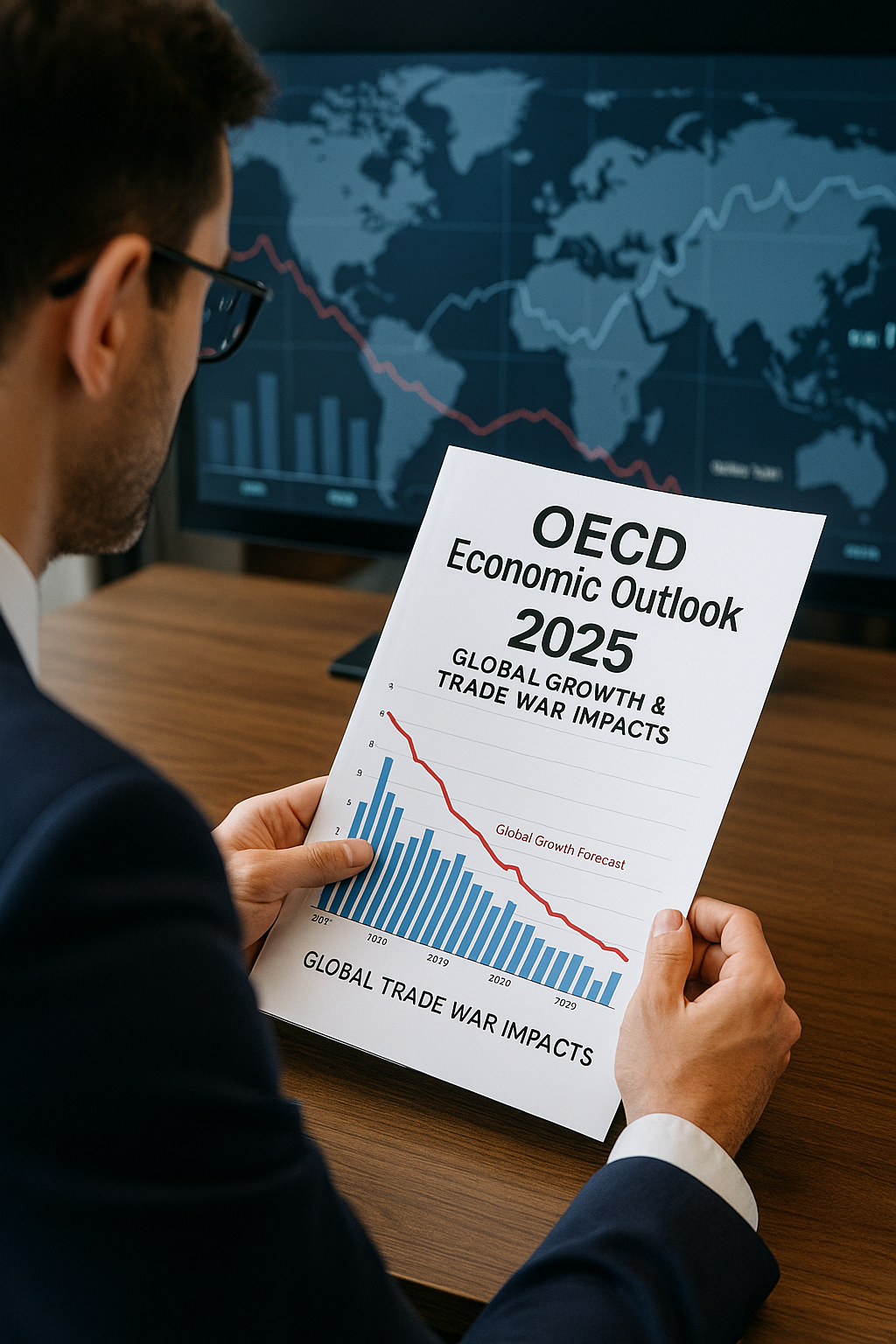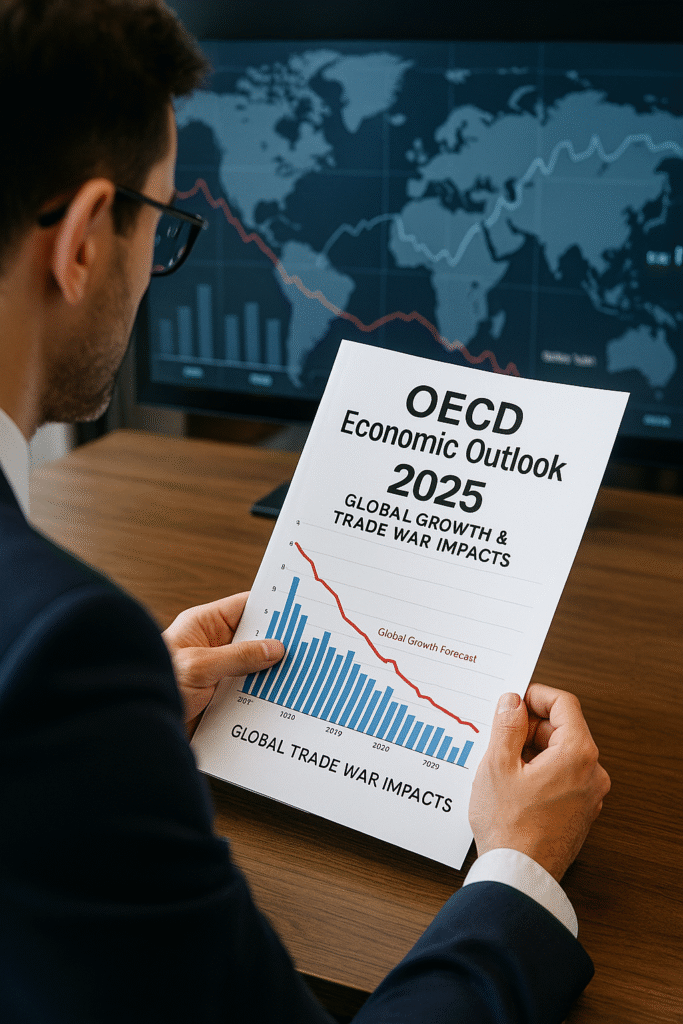
Daftar isi: [Hide]
- 0.1📉 Why the Forecast Was Cut
- 0.2🌎 Impact by Region
- 0.3💼 Investor Outlook
- 0.4🔍 Expert Opinions
- 0.5📊 What This Means for Businesses and Consumers
- 0.6💡 What to Watch Going Forward
- 0.7📘 Conclusion
- 0.8Trusted and Authoritative source:
- 1📌 The password is in the YouTube video : @Dinar Fvnky V3 JOIN TEAM HERE ✅

As of June 3, 2025, the Organisation for Economic Co-operation and Development (OECD) has downgraded its global economic growth forecast to 2.9% for both 2025 and 2026, down from an earlier estimate of 3.2%. The revision comes as trade tensions escalate between major economies, including the United States, China, and the European Union.
📉 Why the Forecast Was Cut
According to the OECD report, ongoing trade disputes and increasing tariffs are creating substantial uncertainty for global supply chains. The U.S. has recently imposed new tariffs on Chinese electronics and steel, prompting retaliatory measures from China and the EU.
“This trade fragmentation is disrupting global investment flows and manufacturing output,” the report states. “We are seeing a chilling effect on business confidence.”
🌎 Impact by Region
- United States:
The U.S. is expected to grow by only 1.8% in 2025, a downgrade from 2.2%. Higher consumer prices and reduced export competitiveness are among the key concerns. - China:
China’s growth forecast dropped to 4.4%, amid weakened exports and a sluggish property market. - European Union:
The EU will see an estimated 1.1% growth, with Germany and France hit hardest by reduced industrial production.
💼 Investor Outlook
Financial markets responded swiftly to the announcement. Global indices such as the S&P 500 and FTSE 100 dipped slightly, while commodity prices like copper and crude oil showed volatility. Analysts predict that central banks may take a more cautious approach to interest rate hikes in response to the global slowdown.
🔍 Expert Opinions
“The trade war is not just a geopolitical issue anymore—it’s an economic reality,” says Dr. Alicia Mendel, Chief Economist at Global Macro Watch. “If policies don’t pivot, we might enter a prolonged low-growth phase globally.”
📊 What This Means for Businesses and Consumers
- Multinational Corporations:
May delay capital investment and hiring decisions due to uncertain trade policies. - Small Businesses:
Could face increased costs for imported goods and supply shortages. - Consumers:
May see rising prices, especially on electronics, clothing, and household goods.
💡 What to Watch Going Forward
- G7 and G20 policy responses
- Tariff negotiations between the U.S. and China
- Central bank decisions on interest rates
- Movement of the U.S. dollar and major currencies
Also read: Apple Faces Challenges Manufacturing iPhones in the U.S. Despite Tariff Threats
📘 Conclusion
The OECD’s revised outlook serves as a wake-up call for policymakers and businesses worldwide. As trade wars intensify, strategic planning becomes crucial for investors, companies, and even consumers. Staying informed and adaptable is key in this new global economic landscape.
Trusted and Authoritative source:
- OECD Official Economic Outlook 2025
https://www.oecd.org/economic-outlook/ - World Bank Global Economic Prospects
https://www.worldbank.org/en/publication/global-economic-prospects - IMF Economic Outlook Database
https://www.imf.org/en/Publications/WEO
📌 The password is in the YouTube video : @Dinar Fvnky V3 JOIN TEAM HERE ✅
💬 Have any tips of your own? Share them in the comments below!







